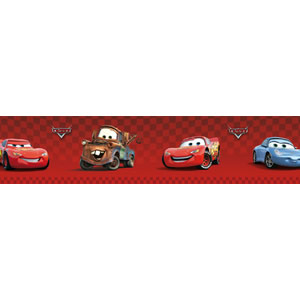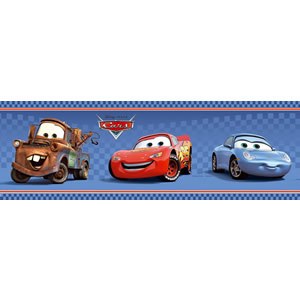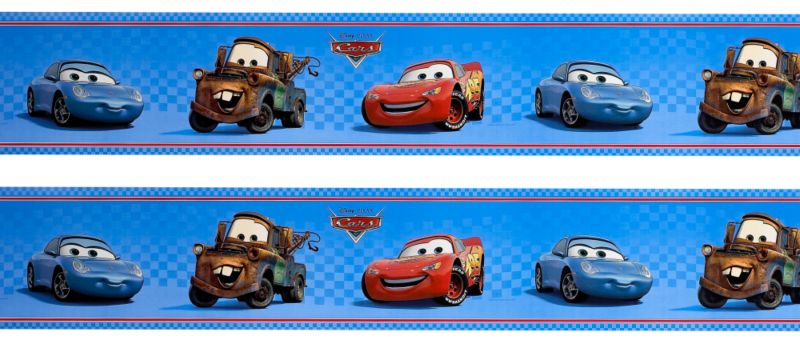Cars Border Biography
Borders define geographic boundaries of political entities or legal jurisdictions, such as governments, sovereign states, federated states and other subnational entities. Some borders—such as a state's internal administrative borders, or inter-state borders within the Schengen Area—are open and completely unguarded. Other borders are partially or fully controlled, and may be crossed legally only at designated border checkpoints. Some, mostly contentious, borders may even foster the setting up of buffer zones.
In the past, many borders were not clearly defined lines, but were neutral zones called marchlands. This has been reflected in recent times with the neutral zones that were set up along part of Saudi Arabia's borders with Kuwait and Iraq (however, these zones no longer exist)[citation needed]. In modern times the concept of a marchland has been replaced by that of the clearly defined and demarcated border. For the purposes of border control, airports and seaports are also classed as borders. Most countries have some form of border control to restrict or limit the movement of people, animals, plants, and goods into or out of the country. Under international law, each country is generally permitted to define the conditions that have to be met by a person to legally cross its borders by its own laws, and to prevent persons from crossing its border when this happens in violation of those laws.
Some legal orders require presentation of passports and visas, or other identity documents to cross borders. To stay or work within a country's borders aliens (foreign persons) may need special immigration documents or permits that authorise them to do so. Having such documents (i.e., visa and passport) however does not automatically guarantee that the alien will be allowed to cross to the other side of the border.
Moving goods across a border often requires the payment of excise tax, often collected by customs officials. Animals (and occasionally humans) moving across borders may need to go into quarantine to prevent the spread of exotic or infectious diseases. Most countries prohibit carrying illegal drugs or endangered animals across their borders. Moving goods, animals or people illegally across a border, without declaring them, seeking permission, or deliberately evading official inspection constitutes smuggling.
In regions where smuggling, migration, and infiltration are a problem, many countries fortify borders with separation barriers and institute formal border control procedures. Some borders are only signposted. This is common in countries within the European Schengen Area and on rural sections of the Canada – United States border. Borders may even be completely unmarked, a common occurrence with remote or forested borders.
Hostile countries that are not at war may be separated by a militarized border. The most well-known of these is the former Berlin Wall. Furthermore, many hostile, militarized borders are separated by a buffer zone or demilitarized zone, such as the Korean Demilitarized Zone and the United Nations Buffer Zone in Cyprus, and may be separated by a buffer state. The most extreme borders are completely closed with no passage, such as the Blue Line that separates Israel and Lebanon.








Borders define geographic boundaries of political entities or legal jurisdictions, such as governments, sovereign states, federated states and other subnational entities. Some borders—such as a state's internal administrative borders, or inter-state borders within the Schengen Area—are open and completely unguarded. Other borders are partially or fully controlled, and may be crossed legally only at designated border checkpoints. Some, mostly contentious, borders may even foster the setting up of buffer zones.
In the past, many borders were not clearly defined lines, but were neutral zones called marchlands. This has been reflected in recent times with the neutral zones that were set up along part of Saudi Arabia's borders with Kuwait and Iraq (however, these zones no longer exist)[citation needed]. In modern times the concept of a marchland has been replaced by that of the clearly defined and demarcated border. For the purposes of border control, airports and seaports are also classed as borders. Most countries have some form of border control to restrict or limit the movement of people, animals, plants, and goods into or out of the country. Under international law, each country is generally permitted to define the conditions that have to be met by a person to legally cross its borders by its own laws, and to prevent persons from crossing its border when this happens in violation of those laws.
Some legal orders require presentation of passports and visas, or other identity documents to cross borders. To stay or work within a country's borders aliens (foreign persons) may need special immigration documents or permits that authorise them to do so. Having such documents (i.e., visa and passport) however does not automatically guarantee that the alien will be allowed to cross to the other side of the border.
Moving goods across a border often requires the payment of excise tax, often collected by customs officials. Animals (and occasionally humans) moving across borders may need to go into quarantine to prevent the spread of exotic or infectious diseases. Most countries prohibit carrying illegal drugs or endangered animals across their borders. Moving goods, animals or people illegally across a border, without declaring them, seeking permission, or deliberately evading official inspection constitutes smuggling.
In regions where smuggling, migration, and infiltration are a problem, many countries fortify borders with separation barriers and institute formal border control procedures. Some borders are only signposted. This is common in countries within the European Schengen Area and on rural sections of the Canada – United States border. Borders may even be completely unmarked, a common occurrence with remote or forested borders.
Hostile countries that are not at war may be separated by a militarized border. The most well-known of these is the former Berlin Wall. Furthermore, many hostile, militarized borders are separated by a buffer zone or demilitarized zone, such as the Korean Demilitarized Zone and the United Nations Buffer Zone in Cyprus, and may be separated by a buffer state. The most extreme borders are completely closed with no passage, such as the Blue Line that separates Israel and Lebanon.
Cars Border

Cars Border

Cars Border

Cars Border

Cars Border

Cars Border

Cars Border

Cars Border

Cars Border
Gibraltar Border And Airport Runway By Car Spain
Living Cars Ep#37 Drive To Wagah Border-II